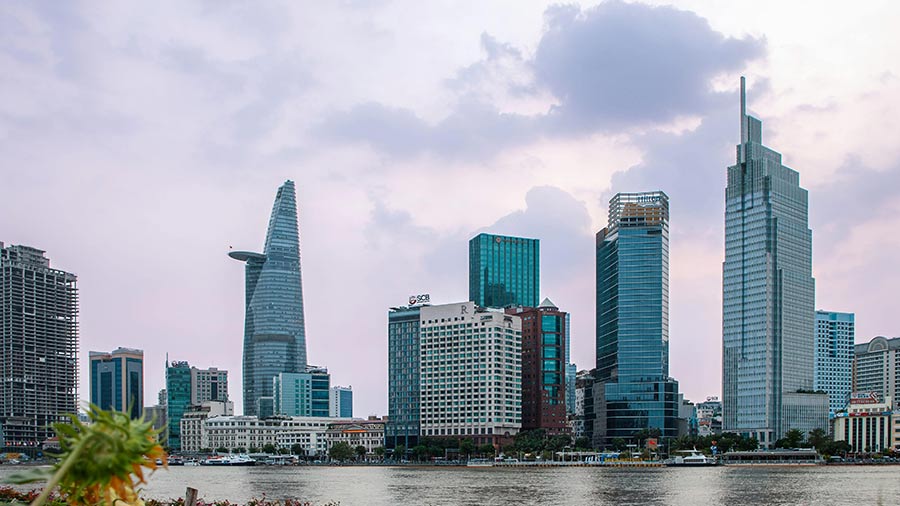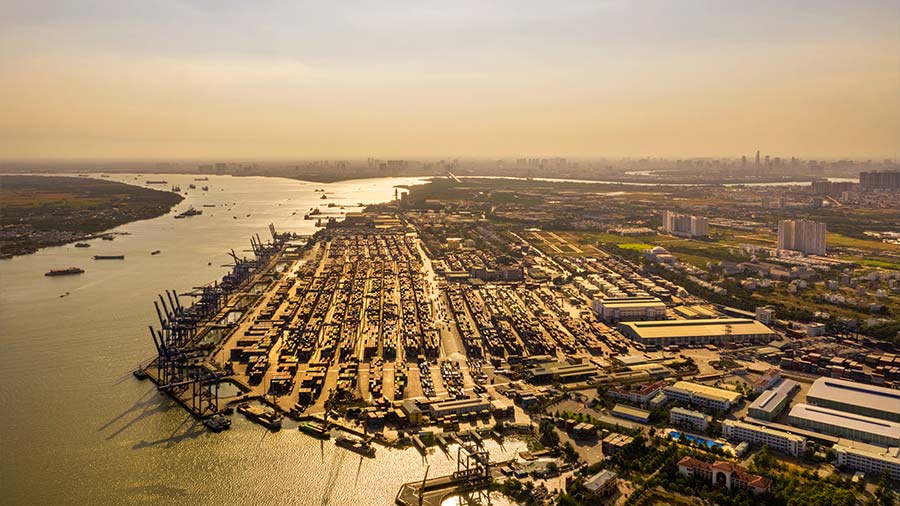Labor laws
Foreign companies wanting to do business in Vietnam must ensure they follow the provisions of the Labor Code, which contains the legal framework for the rights and obligations of employers and employees with respect to working hours, labor agreements, social insurance, overtime, strikes, and termination of employment contracts, to name a few.
Further, Vietnam also approved an amended Labor Code No. 45/2019/QH14, which came into effect in January 2021. The amendment to the labor regulations are a step towards aligning with international labor standards particularly as Vietnam integrates into the world economy as noted by the International Labor Organization (ILO).
In this guide we discuss, employee-employer contacts, rules for severance and payments, bonuses, allowances and benefits, retirement ages and some other key provisions in Vietnam's labor code.
Human Resources in Vietnam
Many foreign investors move operations to Vietnam to take advantage of its large, skilled, and inexpensive labor force. As the economy expands further and more business enters the country, it will increasingly become an important part of corporate strategy to find ways to effectively motivate staff while also complying with local labor laws.
Hiring employees
Vietnam is an attractive place for businesses of all types. The country has a growing consumer base and a young and dynamic workforce with an ever-evolving skill set. In fact, Vietnam’s labor force is growing by more than one million people per year.
There are several important HR considerations in Vietnam. Some of these include:
- While labor costs are still low, wages are steadily increasing. Compounding the costs of employing staff in Vietnam are the comparatively high social insurance contribution and income tax rates.
- A Vietnamese entity is permitted to recruit foreign workers to work as managers, executive directors, and experts where local hires are not yet able to meet production and business requirements.
- Unlike in certain other Asian countries, Vietnamese representative offices are also able to hire staff directly.
Terminating employees
Terminating an employee can be challenging for foreign investors in Vietnam. Vietnamese labor law is generally considered employee friendly, and the termination process must be based on statutory grounds – subject to formal requirements and procedures.
The Vietnamese labor law applies to all employers working in Vietnam under labor contracts regardless of whether such employees are Vietnamese or foreign nationals.
However, the law does not apply to foreign national working in Vietnam via an internal company transfer under a foreign labor contract.
To mitigate the risks associated with labor retrenchment and to maximize flexibility in hiring, it is of significant importance for employers in Vietnam to understand the circumstances under which termination of contracts can be achieved as well as the financial obligation that may arise in these situations.
Business visas and work permits
Vietnam’s visa and work permit procedures can be confusing for first-time visitors. In order to enter Vietnam, a foreigner needs a visa issued by the Vietnamese Embassy or Consulate. A Vietnamese visa can be granted while in a third country or from within Vietnam.
Vietnam work permits, on the other hand, are certificates issued by the Department of Labor, Invalid and Social Affairs that allows the holder to legally work in Vietnam. The permit must be applied for by the employer or a service center in Vietnam and not directly by the foreign workers.
Payroll in Vietnam
In recent years, foreign direct investment (FDI) flows into Vietnam have been on the rise as greater numbers of foreign companies decide to establish businesses in the country. Employers, however, need to develop a good understanding how human resources work in the country. For many, salary structures are usually a beginning point, particularly as it rationalizes wages and motivates staff. Foreign employers that want to attract and retain the best talent need to ensure they understand payroll in Vietnam and coordinate salary structures with HR management.
Wages and salary
In Vietnam, there are two kinds of minimum wages. The first type is the Common Minimum WageVND 2,340,000 (~US$93), which is used to calculate salaries for employees in state-owned organizations and enterprises, as well as to calculate the social contribution for all enterprises. The second type of minimum wage is the Regional Minimum Wage used for employees in all non-state enterprises based on zones as defined by the government.
Minimum Wages in Vietnam depend on location in Vietnam, which the government categorizes into 4 regions. The minimum wage ranges from a low of $US 0.66 per hour and US$ 137 per month in Region 4, to $US 0.94 per hour and US$ 196 per month in Region 1. (Please note that the exchange rate on June 26, 2024, was VND 25,250.)
The employees in Vietnam are also subject to bonuses, which are given to employees based on company earnings and performance and as a way of boosting company morale and productivity. There are various kinds of bonuses that a company may grant its employees throughout the year.
Apart from salary and bonuses, an employee may be entitled to several kinds of allowances and monetary or non-monetary benefits designed to retain staff.
Social security
Employees and employers, whether domestic or international, must participate in mandatory social insurance. There are three types of mandatory social insurance when signing a labor contract:
- Social insurance;
- Health insurance; and
- Unemployment insurance.
For foreign employees, they are required to participate in health insurance if the duration of the employment contract is from 3 months to under 12 months. If the duration of the employment contract is 12 months or more, social insurance is included along with health insurance.
For Vietnamese employees, social insurance is required to participate in the labor contract with a duration of 1 month or more. Labor contracts lasting three months or more must include health and unemployment insurance, as well as social insurance.
The rate of three types of mandatory social insurance for employees and employers is respectively 8 percent and 17.5 percent for social insurance, 1.5 percent and 3 percent for health insurance, and 1 percent for both parties for unemployment insurance.
Public holidays and annual leaves
Vietnam’s public holidays are administered by the Ministry of Labour, Invalids and Social Affairs of Vietnam (MOLISA). Public holidays are observed keeping in mind different religious and cultural holidays. Foreign workers in the country are given an additional day off for their respective country’s national day and a traditional public holiday
In addition to public holidays, employees in Vietnam are also entitled to paid annual leaves, maternity leave, or paternity leave.
Personal income tax
Vietnam’s Law on Personal Income Tax recognizes ten different categories of income, with a host of different deductions, tax rates, and exceptions applying to each of them.
A tax resident is defined as someone residing in Vietnam for 183 days or more in either the calendar year or a period of 12 consecutive months from the date of arrival. Tax residents are subject to PIT on their worldwide employment income, regardless of where the income is paid or earned, at progressive rates from five percent to a maximum of 35 percent. Non-resident taxpayers are subject to PIT at a flat rate of 20 percent on their Vietnam-sourced income.




















